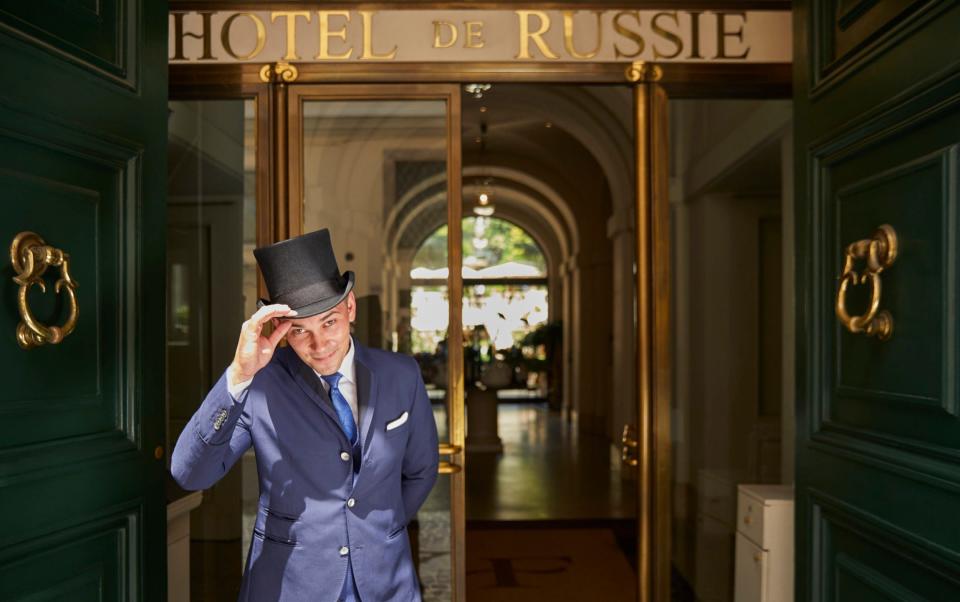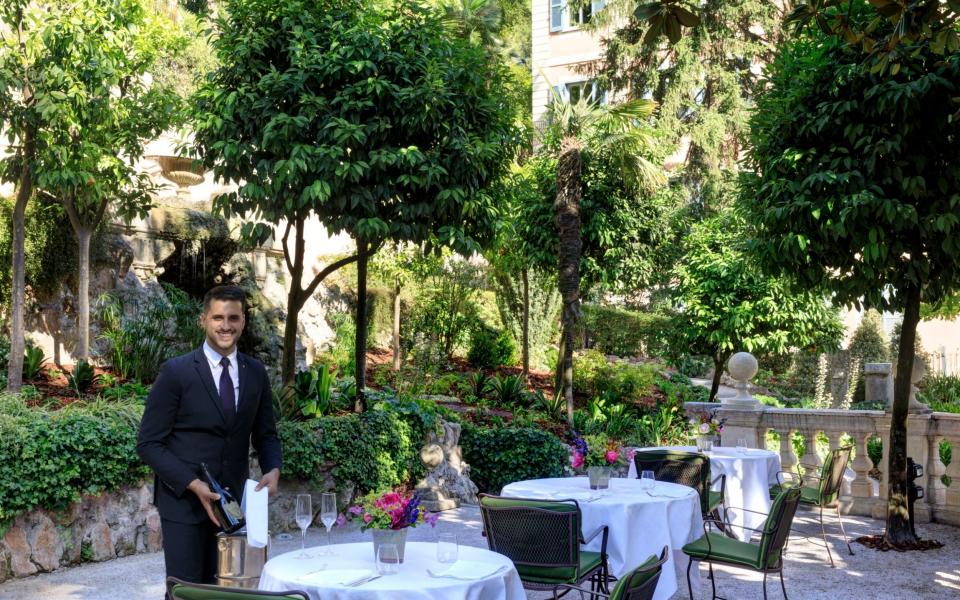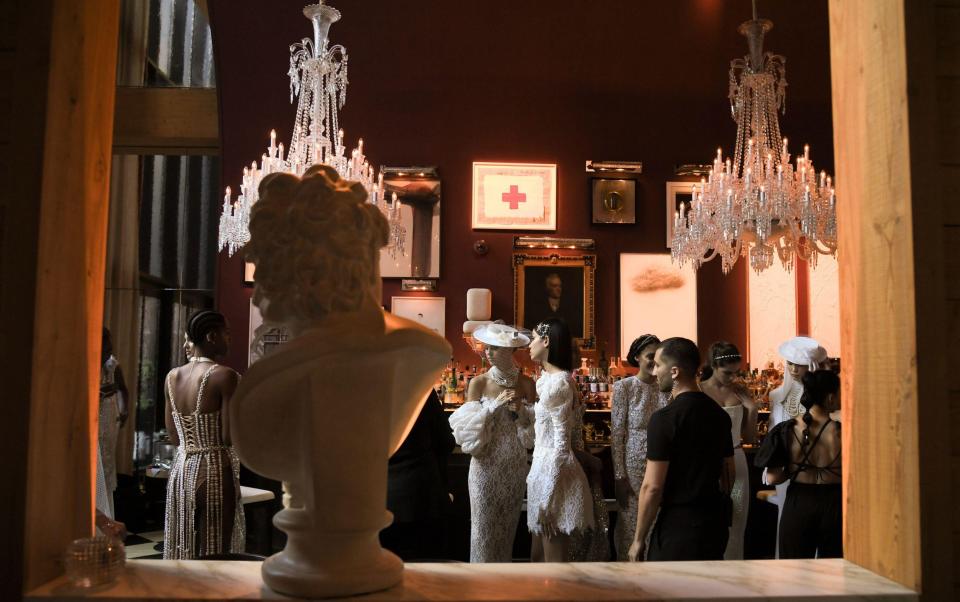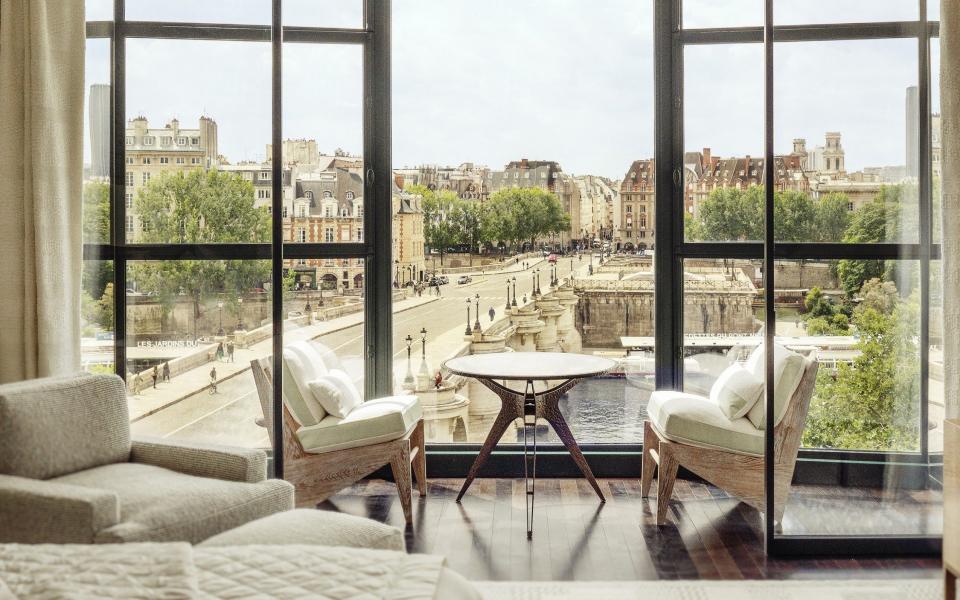Five minutes after checking into the hilltop I booked for my family on the Greek island of Paros, I felt the inglorious punch that I was being ripped off.
The so-called ‘luxury’ villa certainly had the breathtaking views promised online. But the building looked like an identical house without the frills or charm (but lots of ants) that you would expect from a property that bills itself as exclusive. Unfortunately, this anticlimactic scenario is known to many. Here’s why: With the word “luxury” on everything from apartments and dog food to bottled water, consumers are confused about what is authentically chic or a pedestrian product masquerading as chic. Even seasoned reporters are duped.
A lack of regulation
When you buy a Dior bag or a Rolex watch, you know where you stand, because these brands have stood for high quality for decades. Luxury travel, on the other hand, does not come with a certificate of authenticity. It’s an unregulated market with no hard criteria to saturate marketing materials with some form of the word “luxury,” even if the product is average. This results in hotels like the nondescript 500-room W Hotel in Times Square or the 3,000-passenger Celebrity Edge cruise ship being placed in the same category as La Réserve Paris, a true five-star hotel.


STR, a global hospitality data and analytics company, operates 2,357 luxury hotels in the United States, 2,999 in Europe and 540 in the United Kingdom. Their methodology? The average daily rate for the room (currently around £355). Not design. Not excellent customer service.
“Anyone can call themselves a luxury product. But people know true luxury when they experience it,” says Melissa Biggs Bradley, the founder of Indagare, a members-only tour operator known for tailor-made itineraries. “It is personalized and exclusive, with meticulous attention to detail.”
Not long ago, grand, marble-clad hotels with white glove service were the benchmark for luxury.
Hotels paved the way
The landscape changed when ‘experiential’ boutique hotels such as Mondriaan and Delano emerged in the 1990s. “This is a phase we call self-expression, where hotels became less traditional and started catering to a younger, fashionable audience who preferred an understated ‘intuitive’ service style over formality,” said Federica Levato, who heads the luxury goods and fashion division of Bain & Company. At the same time—and this continued well into the next decade—major publicly traded chains added or acquired leading brands, such as Andaz (Hyatt); Ritz-Carlton, Edition and St Regis (Marriott); Conrad (Hilton); Kimpton and InterContinental (IHG). All working with a loyalty points and franchise model. The result? Homogeny.


It’s the design that feels everywhere; the abundance of “smart technology” instead of a highly trained workforce; the inconsistent housekeeping. “The core business of chains such as Marriott, IHG, Hilton, Accor and Hyatt are mainstream hotels,” said Richard Clarke, managing director of Global Hotels and Leisure at Bernstein Research. “The luxury properties create a halo effect around the entire brand, which fuels their loyalty programs.”
Staying at one of these places can be fantastic, especially if you’re not familiar with the alternative. But more often than not, franchise hotels with robust loyalty points programs offer an understated, designed-for-the-masses version of luxury. And thanks to the formula of using points, these hotel chains are always packed.
“The concept of mass luxury is oxymoronic,” explains Indagare’s Biggs Bradley. “Any sense of feeling special, of being cared for, evaporates when you are guest 400 with a cookie cutter room.”
Stephanie Fisher, a travel consultant at Local Foreigner, agrees. “I have learned that the one-size-fits-all mentality does not meet my client’s expectations,” she said. These statements also appeal to me. By definition, corporate hospitality is about return on investment, not about wowing the guest.
Not all chains are generic. Smaller, luxury-oriented hotels such as Rosewood, Belmond, Michel Reybier, Peninsula, Auberge, Mandarin Oriental and Rocco Forte practice curation and old-fashioned hospitality. For example, at Hotel de Russie in Rome (Rocco Forte), The Carlyle in Manhattan (Rosewood) and La Réserve in Paris (Michel Reybier), guests are surprised by the anticipatory service (personal greetings, an attentive concierge who contacts a foodie customer about a new restaurant), experience-enhancing facilities (birthday champagne, local care products) and design that underlines the spirit of the destination.


And the market is still developing. Luxury retail brands are expanding into the hospitality industry, betting that branded hotels will increase their relevance in customers’ lives. The Baccarat Hotel in Manhattan is decorated with Baccarat crystal chandeliers and vases, plus the brand’s glassware in the rooms. Cheval Blanc in Paris, a project owned by LVMH, presents brands from the company’s équipe, from Ruinart champagne to lotions created by Dior’s perfumer, François Demachy (there’s also a Dior spa). These hotels, plus those from Armani and Bulgari, are extremely popular for their refined ambiance and exclusivity.


How can you distinguish serious luxury from posers?
Research the rating systems, but know that each country has its own methodology. The UK system is accredited by the Automobile Association, which has a 35-page breakdown of the Hotel Recognition Scheme criteria. The EU, meanwhile, has a non-profit organization called Hotelstars Union, which lists physical criteria but unfortunately does not base its star system on service. The United States relies on AAA and Forbes Travel Guide, an independent global rating agency.
As for reader-generated lists? Look after. These are not based on research or standards, but on massive studies.
My Greek villa was disappointing, but the experience taught me a lesson: in the future, I will insist on a FaceTime tour of a rental property before booking to ensure the reality matches the online description.